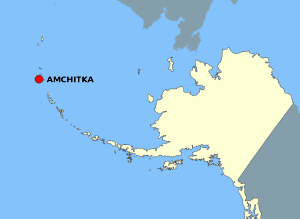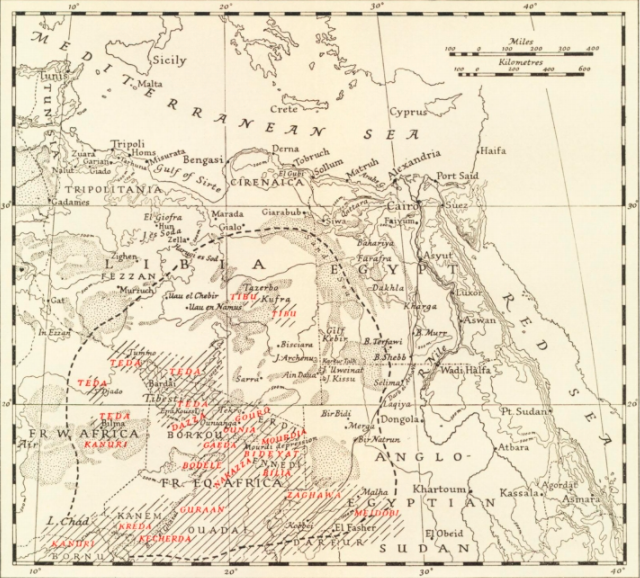|
Akokan, Niger
Akokan is a mining town in the Arlit Department of the Agadez Region of northern-central Niger. It is located about southwest of Arlit in the Sahara Desert, and roughly north of Agadez. It is considered to be Niger's "second uranium town". SOMAIR and COMINAK (Compagnie minière d'Akokan), run by Areva and the Nigerien state, operate uranium mines in the vicinity of the towns of Akokan and Arlit. In the maps of the area, Akokan is classified under "Mine - Agadez-Niger". The Tuareg and Toubou people are local to the area. History The Akokan deposit was initially prospected by a France-Japan-Niger tripartite affiliation in the early 1970s. In 1975, underground mining at Akokan was estimated to require over $100 million in investment. Today over 100,000 people live in Akokan and Arlit. Greenpeace has expressed concerns over the high radiation levels found on the streets of Akokan. Afasto, south of Akokan, was the site of newly discovered uranium reserves in 2001. The operation ... [...More Info...] [...Related Items...] OR: [Wikipedia] [Google] [Baidu] |
Countries Of The World
The following is a list providing an overview of sovereign states around the world with information on their status and recognition of their sovereignty. The 205 listed states can be divided into three categories based on membership within the United Nations System: 193 member states of the United Nations, UN member states, two United Nations General Assembly observers#Current non-member observers, UN General Assembly non-member observer states, and ten other states. The ''sovereignty dispute'' column indicates states having undisputed sovereignty (188 states, of which there are 187 UN member states and one UN General Assembly non-member observer state), states having disputed sovereignty (15 states, of which there are six UN member states, one UN General Assembly non-member observer state, and eight de facto states), and states having a political status of the Cook Islands and Niue, special political status (two states, both in associated state, free association with New ... [...More Info...] [...Related Items...] OR: [Wikipedia] [Google] [Baidu] |
Areva
Areva S.A. was a French multinational group specializing in nuclear power, active between 2001 and 2018. It was headquartered in Courbevoie, France. Before its 2016 corporate restructuring, Areva was majority-owned by the French state through the French Alternative Energies and Atomic Energy Commission (54.37%), Banque publique d'investissement (3.32%), and Agence des participations de l'État (28.83%). Électricité de France, in which the French government has a majority ownership stake, owned 2.24%; the Kuwait Investment Authority owned 4.82% as the second largest shareholder after the French state. As a part of the restructuring program following its insolvency, Areva sold or discontinued its renewable energy businesses and sold its reactors subsidiary Areva NP (which has reverted to its original name, Framatome) to EDF. Its nuclear propulsion and research reactors subsidiary Areva TA (now TechnicAtome) was sold to the Agence des participations de l'État and its nu ... [...More Info...] [...Related Items...] OR: [Wikipedia] [Google] [Baidu] |
Environmentalism
Environmentalism is a broad philosophy, ideology, and social movement about supporting life, habitats, and surroundings. While environmentalism focuses more on the environmental and nature-related aspects of green ideology and politics, ecologism combines the ideology of social ecology and environmentalism. ''Ecologism'' is more commonly used in continental European languages, while ''environmentalism'' is more commonly used in English but the words have slightly different connotations. Environmentalism advocates the preservation, restoration and improvement of the natural environment and critical earth system elements or processes such as the climate, and may be referred to as a movement to control pollution or protect plant and animal diversity. For this reason, concepts such as a land ethics, environmental ethics, biodiversity, ecology, and the biophilia hypothesis figure predominantly. The environmentalist movement encompasses various approaches to addressing envi ... [...More Info...] [...Related Items...] OR: [Wikipedia] [Google] [Baidu] |
Radioactive
Radioactive decay (also known as nuclear decay, radioactivity, radioactive disintegration, or nuclear disintegration) is the process by which an unstable atomic nucleus loses energy by radiation. A material containing unstable nuclei is considered ''radioactive''. Three of the most common types of decay are Alpha decay, alpha, Beta decay, beta, and Gamma ray, gamma decay. The weak force is the Fundamental interactions, mechanism that is responsible for beta decay, while the other two are governed by the electromagnetic force, electromagnetic and nuclear forces. Radioactive decay is a randomness, random process at the level of single atoms. According to quantum mechanics, quantum theory, it is impossible to predict when a particular atom will decay, regardless of how long the atom has existed. However, for a significant number of identical atoms, the overall decay rate can be expressed as a decay constant or as a half-life. The half-lives of radioactive atoms have a huge range: f ... [...More Info...] [...Related Items...] OR: [Wikipedia] [Google] [Baidu] |
Tahoua
Tahoua is a city in Niger and the administrative centre of the Department of Tahoua and the larger Tahoua Region. Falling Rain Genomics, Inc. 1996–2004 It is the fourth largest town in the country, with a population of 117,826 (2012 Census). Overview The city is primarily a for the surrounding agricultural area. It serves as an entrepot for merchants from the north and[...More Info...] [...Related Items...] OR: [Wikipedia] [Google] [Baidu] |
Greenpeace
Greenpeace is an independent global campaigning network, founded in Canada in 1971 by a group of Environmental movement, environmental activists. Greenpeace states its goal is to "ensure the ability of the Earth to nurture life in all its biodiversity, diversity" and focuses its campaigning on worldwide issues such as climate change, deforestation, overfishing, whaling, commercial whaling, genetic engineering, Anti-war movement, anti-war and anti-nuclear issues. It uses direct action, advocacy, research, and ecotage to achieve its goals. The network comprises 26 independent national/regional organisations in over 55 countries across Europe, the Americas, Africa, Asia, Australia and the Pacific, as well as a coordinating body, Greenpeace International, based in Amsterdam, Netherlands. The global network does not accept funding from governments, corporations, or political parties, relying on three million individual supporters and foundation grants. [...More Info...] [...Related Items...] OR: [Wikipedia] [Google] [Baidu] |
Toubou People
The Toubou or Tubu (from Old Tebu, meaning "rock people") are an ethnic group native to the Tibesti Mountains that inhabit the central Sahara in northern Chad, southern Libya, northeastern Niger, and northwestern Sudan. They live either as herders and nomads or as farmers near oases. Their society is clan-based, with each clan having certain oases, pastures and wells. The Toubou are generally divided into two closely related groups: the Teda (or Tuda, Téda, Toda, Tira) and the Daza (or Dazzaga, Dazagara, Dazagada). They are believed to share a common origin and speak the Tebu languages, which are from the Saharan branch of the Nilo-Saharan language family. Tebu is divided further into two closely related languages, called '' Tedaga'' (Téda Toubou) and '' Dazaga'' (Daza Toubou). Of the two groups, the Daza, found to the south of the Teda, are more numerous. The Toubou people are also referred to as the Tabu, Tebu, Tebou, Tibu, 'Tibbu, Toda, Todga, Todaga, Tubu, Tuda, Tudag ... [...More Info...] [...Related Items...] OR: [Wikipedia] [Google] [Baidu] |
Tuareg People
The Tuareg people (; also spelled Twareg or Touareg; Endonym and exonym, endonym, depending on Tuareg languages#Subclassification, variety: ''Imuhaɣ'', ''Imušaɣ'', ''Imašeɣăn'' or ''Imajeɣăn'') are a large Berbers, Berber ethnic group, traditionally nomadic pastoralism, pastoralists, who principally inhabit the Sahara in a vast area stretching from far southwestern Libya to southern Algeria, Niger, Mali, Burkina Faso, and as far as northern Nigeria, with small communities in Chad and Sudan known as the ''Kinnin''. The Tuareg speak Tuareg languages, languages of the same name, also known as ''Tamasheq'', which belong to the Berber languages, Berber branch of the Afroasiatic family. They are a semi-nomadic people who mostly practice Islam, and are descended from the indigenous Berber communities of Northern Africa, whose ancestry has been described as a mosaic of local North Africa, Northern African (Taforalt), Middle Eastern, Genetic history of Europe, European (Early Eu ... [...More Info...] [...Related Items...] OR: [Wikipedia] [Google] [Baidu] |
COMINAK
COMINAK (Compagnie minière d'Akokan) is a national uranium mining company of Niger. It is a joint venture between the French company Areva NC and the state of Niger, which operates in the field of mining. COMINAK was established in 1974, following a memorandum of understanding between France, Japan and Niger. They commenced uranium production in 1978, and reached a record production in 1981 with 2,260 tons of uranium. COMINAK's plant is installed in Akokan, not far from the town of Arlit. COMINAK is one of two national mining companies in Niger, the other being SOMAIR in the nearby Arlit. , the U3O8 ore grade reserves at Somaïr were 14,000 tons at 0.3%, Cominak is 29,000 t at 0.4% and Imouraren 120,000t at 0.15%. History The earliest reported exploration for uranium started in 1956 was initially by the French Atomic Energy Commission (CEA) which was continued by COGEMA. This was followed by extraction of the mines at Akouta and Akola by COMINAK. In 1970, France- ... [...More Info...] [...Related Items...] OR: [Wikipedia] [Google] [Baidu] |
Flag Of Niger
A flag is a piece of fabric (most often rectangular) with distinctive colours and design. It is used as a symbol, a signalling device, or for decoration. The term ''flag'' is also used to refer to the graphic design employed, and flags have evolved into a general tool for rudimentary signalling and identification, especially in environments where communication is challenging (such as the maritime environment, where semaphore is used). Many flags fall into groups of similar designs called flag families. The study of flags is known as "vexillology" from the Latin , meaning "flag" or "banner". National flags are patriotic symbols with widely varied interpretations that often include strong military associations because of their original and ongoing use for that purpose. Flags are also used in messaging, advertising, or for decorative purposes. Some military units are called "flags" after their use of flags. A ''flag'' (Arabic: ) is equivalent to a brigade in Arab countrie ... [...More Info...] [...Related Items...] OR: [Wikipedia] [Google] [Baidu] |




